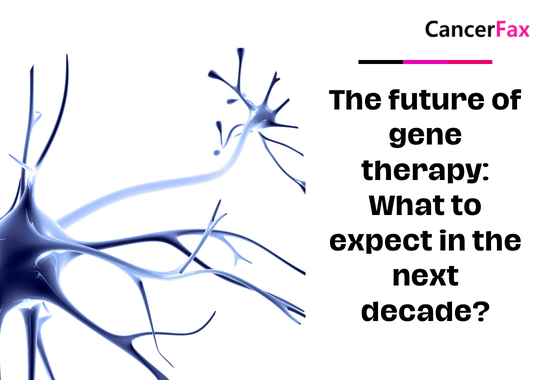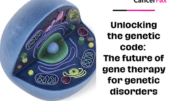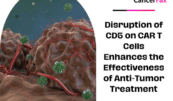The future of gene therapy: What to expect in the next decade?
Gene therapy
Gene therapy, which means changing genes to cure or avert diseases, has progressed significantly in the last number of years. The future of gene therapy looks bright due to inventions in gene editing techniques such as CRISPR-Cas9. Thus, as we approach the edge of a new medical era, it will be transformative in the next 10 years for all possible aspects of knowledge concerning genetic disorders and methods for their treatment.
Precision medicine: Tailoring treatments to individual genomes
One of the most important developments expected in the next decade is access to precision medicine. This approach involves tailoring treatment to each patient’s individual characteristics, often based on their genetic makeup. With the decreasing cost of genome sequencing, it will be increasingly feasible to analyze a patient’s entire genome to identify mutations and tailor treatments.
Citation: Collins, F.S., & Varmus, H. (2015). A new initiative on precision medicine. New England Journal of Medicine, 372(9), 793-795. doi:10.1056/NEJMp1500523.
Advances in CRISPR and other gene-editing technologies
CRISPR-Cas9 has revolutionized gene editing by providing an accurate, efficient, and relatively simple method of gene editing. Over the next decade, we can expect significant advances in CRISPR technology, including increased accuracy and reduced off-target effects. In addition, new gene editing techniques, such as base editing and prime editing, which allow precise genetic modifications without introducing double-strand breaks, are becoming more sophisticated and widely used.
Citation: Doudna, J.A., & Charpentier, E. (2014). The new frontier of genome engineering with CRISPR-Cas9. Science, 346(6213), 1258096. doi:10.1126/science.1258096.
Citation: Anzalone, A.V., Randolph, P.B., Davis, J.R., Sousa, A.A., Koblan, L.W., Levy, J.M., … & Liu, D.R. (2019). Search-and-replace genome editing without double-strand breaks or donor DNA. Nature, 576(7785), 149-157. doi:10.1038/s41586-019-1711-4.
Gene therapy for rare and common diseases
While gene therapy has primarily been used to treat rare genetic diseases, its application to more common diseases will expand. Early trials for conditions such as sickle cell anemia, cystic fibrosis and some forms of blindness have already shown promising results. Over the next decade, we can expect gene therapies for many conditions, including neurodegenerative diseases such as Alzheimer’s and Parkinson’s, and even some cancers.
Citation: Frangoul, H., Altshuler, D., Cappellini, M.D., Chen, Y., Domm, J., Eustace, B.K., … & Walters, M.C. (2021). CRISPR-Cas9 gene editing for sickle cell disease and β-thalassemia. New England Journal of Medicine, 384(3), 252-260. doi:10.1056/NEJMoa2031054.
Citation: Keown, K., Smalley, R., & Singh, M. (2021). Gene therapy for cystic fibrosis: The end of the beginning. NPJ Genomic Medicine, 6(1), 1-10. doi:10.1038/s41525-020-00161-1.
Overcoming delivery challenges
One of the largest challenges in gene therapy is the efficient and secure transport of genetic material to the target cells. Current techniques, which include viral vectors and nanoparticles, have boundaries consisting of capability immune responses and restricted focus on precision.
In the subsequent decade, improvements in shipping structures are predicted to overcome these hurdles. Improved vectors and transport strategies will enhance the performance and safety of gene treatments, making an allowance for greater targeted and controlled gene editing.
Citation: Yin, H., Kauffman, K.J., & Anderson, D.G. (2017). Delivery technologies for genome editing. Nature Reviews Drug Discovery, 16(6), 387-399. doi:10.1038/nrd.2016.280.
Ethical and regulatory considerations
As technological gene therapy evolves, ethical considerations play an important role. The prospect of germline editing, which requires modifications that can be passed on to future generations, raises serious ethical concerns A complex regulatory framework that balances potential benefits with risks and ethical consequences will be necessary to ensure the responsible use of genetic modification technologies.
Citation: Lanphier, E., Urnov, F., Haecker, S.E., Werner, M., & Smolenski, J. (2015). Don’t edit the human germ line. Nature, 519(7544), 410-411. doi:10.1038/519410a.
Cost of gene therapy treatment
The cost of gene therapy treatment remains a sizeable barrier to its widespread adoption. However, as technologies enhance and grow to be more green, the cost of gene treatment options is predicted to lower. Efforts to make those remedies more handy can be important in making sure that the blessings of gene remedies reach a broader populace. Public and personal partnerships, together with policy interventions, could be necessary to deal with the financial challenges associated with gene therapy.
Citation: Mullin, E. (2019). The gene therapy revolution is here. Can we afford it? MIT Technology Review. Retrieved from https://www.technologyreview.com/2019/02/01/103546/gene-therapy-revolution-cost/.
Future directions
Looking ahead, the future of gene therapy is bright, with several exciting directions on the horizon:
- Integration with AI and Big Data: Advances in artificial intelligence and big data analytics will enhance our ability to understand complex genetic interactions and improve the precision of gene therapies.
- Regenerative Medicine: Combining gene therapy with stem cell technology could lead to breakthroughs in regenerative medicine, enabling the repair or replacement of damaged tissues and organs.
- Global Health: Efforts to make gene therapies accessible in low- and middle-income countries will be crucial in addressing global health disparities and ensuring that the benefits of these advancements are shared worldwide.
Conclusion
The next decade promises to be a transitional period in gene therapy. Focusing on advances in precision medicine, gene editing technologies and delivery methods, ethical considerations and cost reduction, gene therapy is poised to transform treatments for genetic diseases while unlocking genetic code and the potential to improve health outcomes and improve quality of life for millions around the world.
Citation: Collins, F.S., & Varmus, H. (2015). A new initiative on precision medicine. New England Journal of Medicine, 372(9), 793-795. doi:10.1056/NEJMp1500523.
Citation: Doudna, J.A., & Charpentier, E. (2014). The new frontier of genome engineering with CRISPR-Cas9. Science, 346(6213), 1258096. doi:10.1126/science.1258096.
Citation: Anzalone, A.V., Randolph, P.B., Davis, J.R., Sousa, A.A., Koblan, L.W., Levy, J.M., … & Liu, D.R. (2019). Search-and-replace genome editing without double-strand breaks or donor DNA. Nature, 576(7785), 149-157. doi:10.1038/s41586-019-1711-4.
Citation: Frangoul, H., Altshuler, D., Cappellini, M.D., Chen, Y., Domm, J., Eustace, B.K., … & Walters, M.C. (2021). CRISPR-Cas9 gene editing for sickle cell disease and β-thalassemia. New England Journal of Medicine, 384(3), 252-260. doi:10.1056/NEJMoa2031054.
Citation: Keown, K., Smalley, R., & Singh, M. (2021). Gene therapy for cystic fibrosis: The end of the beginning. NPJ Genomic Medicine, 6(1), 1-10. doi:10.1038/s41525-020-00161-1.
Citation: Yin, H., Kauffman, K.J., & Anderson, D.G. (2017). Delivery technologies for genome editing. Nature Reviews Drug Discovery, 16(6), 387-399. doi:10.1038/nrd.2016.280.
Citation: Lanphier, E., Urnov, F., Haecker, S.E., Werner, M., & Smolenski, J. (2015). Don’t edit the human germ line. Nature, 519(7544), 410-411. doi:10.1038/519410a.
Citation: Mullin, E. (2019). The gene therapy revolution is here. Can we afford it? MIT Technology Review. Retrieved from https://www.technologyreview.com/2019/02/01/103546/gene-therapy-revolution-cost/.
Susan Hau is a distinguished researcher in the field of cancer cell therapy, with a particular focus on T cell-based approaches and cancer vaccines. Her work spans several innovative treatment modalities, including CAR T-cell therapy, TIL (Tumor-Infiltrating Lymphocyte) therapy, and NK (Natural Killer) cell therapy.
Hau's expertise lies in cancer cell biology, where she has made significant contributions to understanding the complex interactions between immune cells and tumors.
Her research aims to enhance the efficacy of immunotherapies by manipulating the tumor microenvironment and exploring novel ways to activate and direct immune responses against cancer cells.
Throughout her career, Hau has collaborated with leading professors and researchers in the field of cancer treatment, both in the United States and China.
These international experiences have broadened her perspective and contributed to her innovative approach to cancer therapy development.
Hau's work is particularly focused on addressing the challenges of treating advanced and metastatic cancers. She has been involved in clinical trials evaluating the safety and efficacy of various immunotherapy approaches, including the promising Gamma Delta T cell therapy.
- Comments Closed
- July 18th, 2024






CRISPR advancements 2030, Future of genetic disorders treatment, Gene editing breakthroughs, Gene therapy future trends, Gene therapy innovations, Next-gen genetic medicine, Precision medicine evolution, Upcoming biotech revolutions
🌟 Welcome to Beijing Biotech! 🌟
Thank you for reaching out! We are dedicated to transforming lives through advanced gene therapy solutions for sickle cell disease and thalassemia. Our team is committed to delivering cutting-edge treatments, personalized care, and support on every step of your journey to better health.
Please feel free to ask any questions or let us know how we can assist you. Together, we’re here to make a difference.
Warm regards,
The Beijing Biotech Team